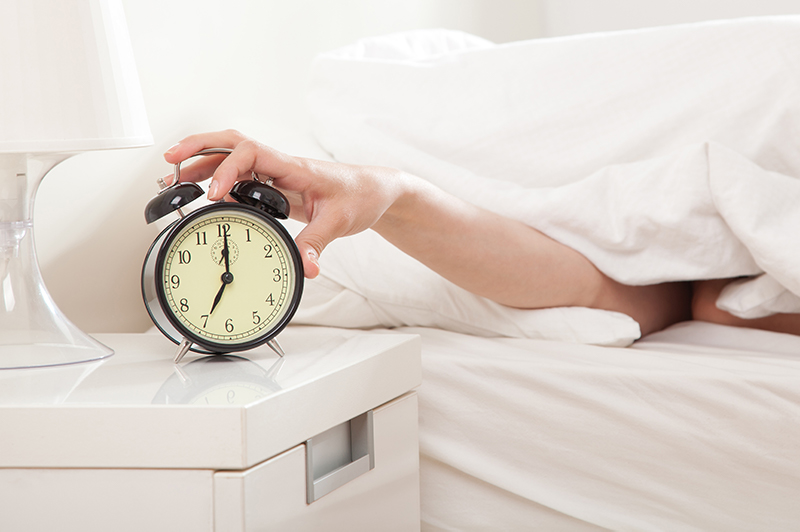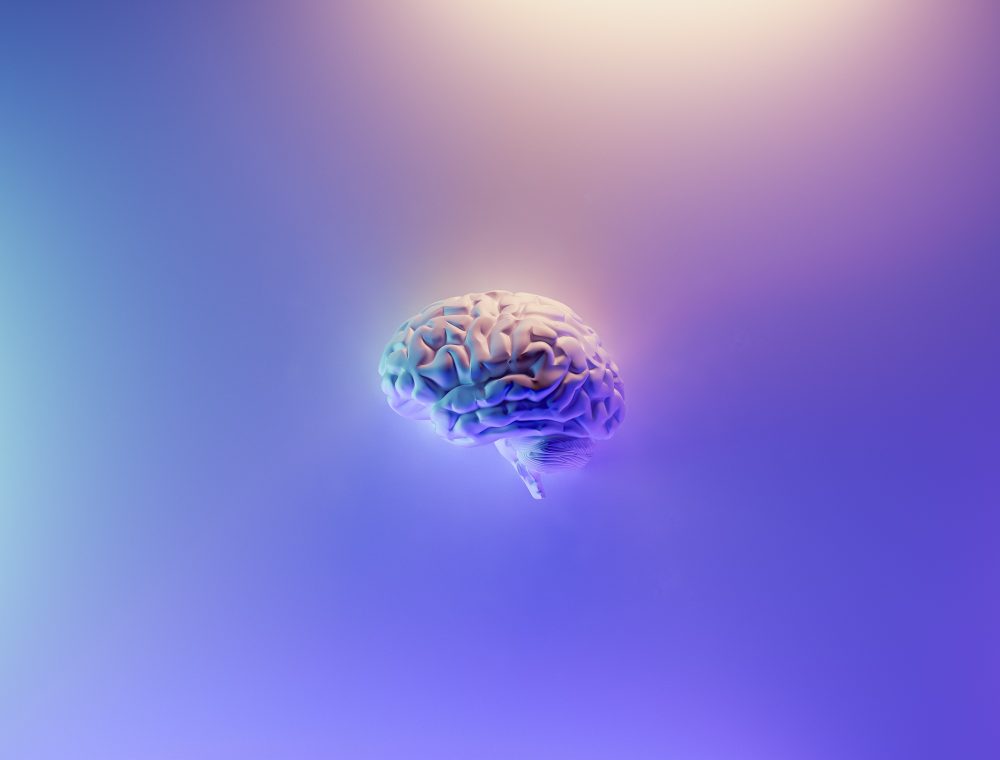The human brain is capable of so much. With proper sleep, it can function at peak levels. As a nation, however, in an effort to do more, we’re sacrificing sleep. As a culture, we’re misapplying technology ironically designed to help us do and be more, and it is short-circuiting sound slumber. The price tag is just too high. Science has proven inadequate sleep is detrimental to cognitive functioning. The age-old advice of getting a good night’s rest is as relevant as ever. Putting focus into getting quality sleep pays off big in brain power. I’m here to tell you, it is worth the effort.

How Much Sleep Do We Need?
The American Academy of Sleep Medicine and the Sleep Research Society recommend that adults sleep at least 7 hours each night to promote optimal health and well-being. Some of us will find we even need a little more sleep, maybe 8 or 9 hours. But, we’re not getting there. More than one-third of Americans self-reported they are not getting adequate sleep on a regular basis. This has health consequences and, importantly, is resulting in cognitive compromise.
Setting the Stage for Good Sleep
No, I’m not going to suggest you kick your beloved pet out of the bedroom, though research shows cats and dogs in the bed disrupt quality sleep, but I am going to run through some basic guidelines the Centers for Disease Control (CDC) provides for improving sleep. These include:
- Being consistent. We should go to bed at roughly the same time each night. And, we should also be consistent with the time we rise. I hear you. “I cherish sleeping in on Saturday mornings!” The reality is sleeping in on the weekend can actually backfire on us as it messes with our internal clocks.
- Creating a sleep sanctuary. Personal preferences will vary, but generally speaking you want to have a cool room temperature, clean sheets, no noise and darkness.
- Limiting your consumption. It is not advised to eat a heavy meal close to bedtime. Additionally, alcohol, caffeine and nicotine consumption too close to bedtime can disrupt sleep. If you’re finding it hard to go to sleep, or to stay asleep, consider your evening consumption patterns.
- Removing electronics. Some of this is a no-brainer. You don’t want to have the computer up and running by your bed. And, contrary to what some of you may be doing, having the tv on to help you fall asleep is really not helping with your quality of sleep. Moreover, having the phone by the bed, with alerts pinging, is disruptive to your slumber. (More on smartphones below. Keep reading.)
- Moving during the day. It’s proven that exercise is a real brain boost. Turns out it can also be a bedtime boon. Investing in some daytime exercise can pay off in the nighttime because exercise can help you fall asleep faster.
Common Traps, Tips and Tricks
In addition to the recommendations of the CDC, there are some common traps, tips and tricks that may prove worthwhile when it comes to getting a good night’s rest. Consider the following:
Snooze Button Lose
The saying “you snooze you lose” might refer to getting a jump start on things, but when it comes to sleep and the brain, there is more to it. The National Sleep Foundation explains that when you hit snooze, the snooze window isn’t long enough to complete a full sleep cycle, so you’ll end up feeling tired the first hour or two after getting up. If you feel you need a snooze button safeguard, try setting your phone or alarm clock far enough away from the bed so that you have to actually get up to turn it off.
Outsmarting the App Data
In line with our end goal of giving our brains the best shot at functioning optimally, this concept involves the brain and the way we might be thinking about quality sleep. App technology has become so smart it may be outsmarting us. Are you wondering how many times you woke up in the night? There is an app for that. Want to know exactly down to the minute how long you slept last night? There’s an app for that, too. But here’s the kicker, digesting all the sleep data points our apps can deliver can actually amp up the anxiety.
If you’re one to monitor yourself via this type of technology, you may find yourself getting anxious when the app tells you your rest was poor, even if you woke up feeling pretty good! You’ve now sent the message to your brain and it’s looking to make sense of the input throughout the day. Am I tired? Is my thinking slow? Or, maybe you set your alarm for the night and Mr. Smartphone calls out you’re going to get 6 hours and 50 minutes of sleep. Oh geez, you think, I know I need seven hours. You’ve just set your mind into a negative thinking pattern as you try to doze off. All the while, 6 hours and 50 minutes is ticking down to 6 hours 49 minutes, 48 minutes……and so on.
There’s no real guideline here, but my advice is to stay aware of what I call the “app data trap.” There is no need to calculate how much sleep you’re actually going to get once you do get in bed and set the alarm. That bell has been rung. And when technology is telling you you woke up too many times in the night, consider the fact that the technology used to measure the waking up is not foolproof. It just may be that your best measure of quality sleep is going to be how you think and feel over the next couple of days.
Blackout Clock
Staying with the thinking theme, how many of you get to worrying about not sleeping when you wake in the night, look over and see what time it is, and think to yourself something like, “Oh, no, it is 11:45 and I’ve still not fallen asleep.” Or, “Why am I awake? What time is it? Oh, 3:50. Two more hours and my alarm goes off.” This thinking really gets to us. Our brain starts to worry about the fact that we aren’t asleep, and then it starts thinking about how lack of sleep is going to specifically impact us the following day. Here’s one solution to this problem: get a blackout clock. There is no reason to know what time it is when you wake up in the night. And the same holds true for turning in. Once you’ve set the alarm and you lay your head down, stay focused on the task at hand – falling asleep.
Soothing Amber
Getting the phone out of the bedroom is the recommendation. But, I know many of us watch tv, peruse the Internet or check the calendar ahead of turning out the light. Here we find smart phones have some smart features to actually help us with getting quality sleep. Most phones have a night version. On iPhones they call it “night shift” and this setting can be found in the Display and Brightness options under Settings. On night shift, the screen brightness diminishes, transitioning from a stimulating cool blue to a warmer, soothing yellow. If nothing else, I’ve found that the transition on my iPhone to Night Shift serves as a reminder to me that it is close to bedtime.
Weighted Blanket
Occupational therapists have been using heavy weighted blankets to calm children with sensory disorders for decades. Now adults are turning to weighted blankets to improve sleep. Many report that the weight of the blanket provides a calming effect by simulating a hug. It makes sense. Research has shown people with anxiety benefit from a weighted blanket and anxiety is a known suspect in the battle against insomnia. A weighted blanket might be worth a try. Who couldn’t use a hug?!
Power Napping
If you follow me, you know I’m a fan of napping to boost brain power. Research has shown that a short nap (around 15 minutes) can significantly improve performance and reduce mistakes. Some research has even shown that a 10 minute nap can make up for lost nighttime sleep. So, taking a nap may be one way to address an inevitable late night or early morning.
Rule out Medical Causes for Poor Sleep
There can be medical-related reasons someone is unable to get a good night’s rest. Common causes here could be restless leg syndrome, depression, hormonal imbalances and obstructive sleep apnea. Talk with your doctor if you suspect you are dealing with some of these issues. Do not continue to suffer. You need quality sleep.
To Bed To Bed Sleepyhead
Science has proven the impact inadequate, sub-par sleep has on brain functioning. Why would we ever want to handicap our cognitive abilities? Our brains have incredible capacity. Make sound sleep a priority and see what it can do for you.
Night-Night, sleep tight.
A sound night’s rest is a prerequisite for optimal functioning. At Brain Basics we’re focused on maximizing human potential during waking hours. Using proven tools and personal assessments designed to generate actionable self-awareness, we foster innovate thinking in order to create lasting change. Are you or your team seeking advancement through untapped potential? Contact Brain Basics to learn more about our science-based approach to personal and professional growth.


